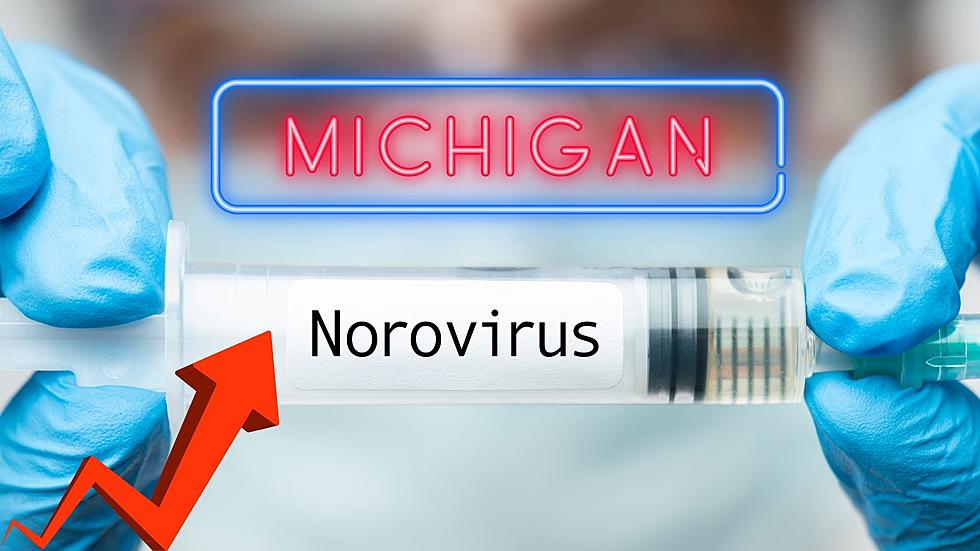
WARNING: Infectious Virus Quickly Spreading Throughout Michigan
One of the unfortunate things about living as a human is that we have to deal with illnesses, diseases, and viruses that come and go in waves. Most illnesses are not a big deal as these are often referred to as "bugs" or common colds that we see happening on a regular basis, while viruses are a little more serious and are stuck with you forever whether they are alive and active or resting dormant.
The last couple of years have been crazy when it comes to illness as we dealt with the Covid-19 pandemic, the flu, allergy season, and other colds and bugs flying around. Many people have immune systems that make it harder for them to fight off infection while others have had theirs compromised by another time; they were sick. Make sure you're taking care of yourself and eating vitamins as there is another virus making its way through Michigan and the United States as a whole.

Michigan is currently sitting along the lines that the rest of the Midwest is lying upon in terms of the illness that has been plaguing the state recently. Michigan is sitting at a !0% or 1/10 people contraction rate but what does all of this mean?
What Is Norovirus?
The virus that is making its way around the state right now attacks the stomach and makes one feel as if they have a stomach bug. The virus is one that spreads easily from close contact so places like cruise ships, schools, churches, offices, and other close proximity places can cause rapid exposure. The virus goes by the name Norovirus and is not something that is new to us here in the states.
Norovirus has been around for quite some time now and mostly makes it circulation during the winter months. Many professionals and doctors have started to deem the virus "winter vomiting disease", this year's numbers are on par with other years but with a few more weeks left before winter is over, we may be looking at a spike.
How Does It Spread/How Long Does It Last
Norovirus can spread from person to person, in food or water or on contaminated surfaces. Because it's so contagious, one handshake or a the touch of a contaminated doorknob or handrail can be enough. Illness caused by norovirus typically starts suddenly, as a person can go from slightly unwell to miserable within hours. It usually lasts two to three days. Most people recover fully.
Who's At Risk and How To Be Safe
There is no medication to treat norovirus. Dehydration from vomiting and diarrhea is a chief worry, so those most at risk include young children, older people and those with weakened immune systems. It's important to replace fluids by sipping water, soda or other drinks except coffee, tea and alcohol during illness.
The best defense against norovirus infection, especially during the peak winter season, is rigorous and frequent handwashing, use ordinary soap and warm water and scrub hands vigorously for 20 seconds before meals. Cleaning surfaces is important, too. Use household disinfectants and scrub well.
If we all continue to take care of ourselves and clean our surfaces than we should be able to mitigate the spread of Norovirus in Michigan.

